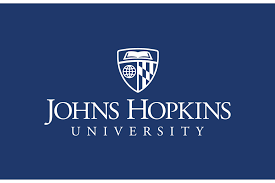
Johns Hopkins University Launches Twin Initiatives in India to Combat TB and Empower Women in STEMM
Johns Hopkins University (JHU) has unveiled two major initiatives aimed at addressing pressing national priorities in India—accelerating the elimination of tuberculosis (TB) and fostering gender equality in STEMM (science, technology, engineering, mathematics, and medicine).
TB-Free Schools Initiative
To combat the high prevalence of TB among children, Johns Hopkins researchers are collaborating with Indian counterparts to launch the TB-Free Schools Initiative. This program is inspired by a successful pilot in Himachal Pradesh that achieved an impressive 87% reduction in TB cases among students in residential schools.
The initiative will expand to four regions across three states: Pune and Satara in Maharashtra, Gorakhpur in Uttar Pradesh, and Chennai in Tamil Nadu. It focuses on early prevention, diagnosis, and treatment of both active and latent TB cases among day school students. The program also includes linkage to care, education, and counseling. Key collaborators include the Government of India, Serum Institute of India, AIIMS Gorakhpur, and the Mukul Madhav Foundation.
Dr. Urvashi B. Singh, Deputy Director General of the Central Tuberculosis Division at the Ministry of Health and Family Welfare, emphasized the program's importance, stating, “Addressing childhood TB is critical for eliminating tuberculosis in India. This initiative offers cost-effective screening methods that can be deployed in schools nationwide.”
Empowering Women in STEMM
In a parallel effort, Johns Hopkins University has launched a career advancement initiative for early-career women in STEMM. The pilot program will mentor and train 40 women for senior research and development (R&D) roles.
While India boasts 43% of STEMM graduates—outperforming many higher-GDP nations—the representation of women in the research workforce remains low at 17%. Barriers such as gender bias, lack of mentorship, and limited access to research grants hinder long-term success for women in STEMM.
The Johns Hopkins Gupta-Klinsky India Institute (GKII), selected as an anchor partner under the U.S.-India Alliance for Women’s Economic Empowerment, will lead the initiative. The 12-month program offers technical research training, experiential learning, structured mentorship, leadership development, and networking opportunities.
Speaking about the initiative, Ronald J. Daniels, President of Johns Hopkins University, remarked, “India is a place of tremendous talent and opportunity, and Johns Hopkins values its enduring collaborations in India. We are excited to launch these two initiatives that reflect our shared commitment to innovation and human flourishing.”
Global Support for Gender Equity in STEMM
Key U.S. officials also highlighted the importance of the fellowship program. Nancy Izzo Jackson, Deputy Assistant Secretary for India in the Bureau of South and Central Asian Affairs, said, “The U.S.-India Alliance for Women’s Economic Empowerment strengthens women’s workforce participation and creates pathways to leadership. We are pleased to support the Gupta-Klinsky India Institute at Johns Hopkins University to advance women’s growth in STEMM research and education.”
Dr. Geeta Rao Gupta, Ambassador-at-Large in the Office of Global Women’s Issues, added, “Empowering women in STEMM is vital to fostering innovation and addressing the complex challenges of our time. This fellowship will remove barriers, provide mentorship, and build a robust network for early-career women, helping them lead the way in research and discovery.”
These initiatives mark a significant step forward in addressing India’s healthcare and gender equity challenges, reinforcing the enduring collaboration between India and Johns Hopkins University.